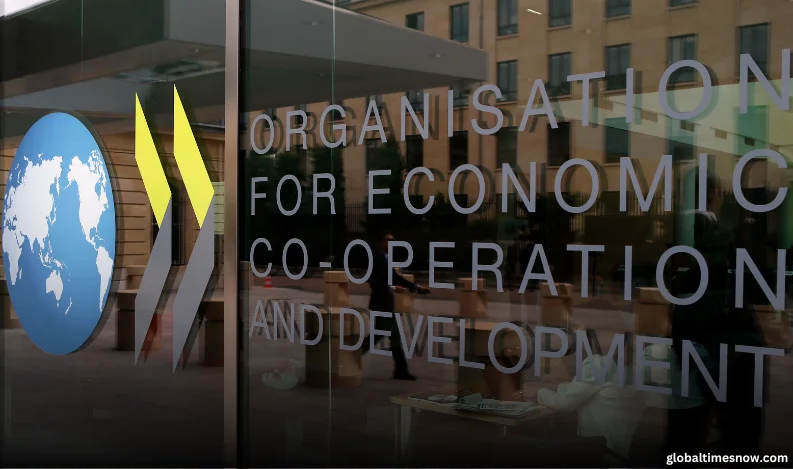The Organisation for Economic Co-operation and Development (OECD) has revised down its global and U.S. economic growth forecasts, citing trade barriers and policy uncertainty linked to President Donald Trump’s proposed tariffs.
According to the OECD's latest Economic Outlook report, global GDP growth is now expected to slow from 3.2% in 2024 to 3.1% in 2025 and 3.0% in 2026, marking a downward revision from the previous estimate of 3.3% growth for both years. The U.S. economy is also set to decelerate, with GDP growth projected at 2.2% in 2025 and 1.6% in 2026, down from earlier forecasts of 2.4% and 2.1%, respectively.
Trade Tariffs and Economic Uncertainty
The OECD attributed the weaker growth outlook to rising trade barriers, geopolitical tensions, and policy uncertainty. The report assumes that tariffs between the U.S., Canada, and Mexico will be increased by an additional 25 percentage points on nearly all merchandise imports starting in April.
"Higher trade barriers in several G20 economies and increased policy uncertainty are weighing on investment and household spending," the OECD stated.
OECD Secretary-General Mathias
Cormann emphasized the importance of reducing uncertainty in trade policy. Speaking to CNBC, he said, "There’s a very significant level of uncertainty right now. The global economy would benefit from more predictable trade policies."
Impact on Canada and Mexico
The economic outlook for Canada and Mexico, both major trading partners of the U.S., has been significantly downgraded due to the tariffs.
- Canada's GDP is now expected to grow by just 0.7% in 2025, down from the previous estimate of 2%.
- Mexico's economy is projected to contract by 1.3%, a sharp reversal from the previously forecasted 1.2% expansion.
The OECD warned that these tariffs would not only hurt the economies directly targeted but also have a spillover effect on global growth and inflation.
Rising Inflation and Policy Implications
In addition to slowing economic growth, inflation is expected to remain higher than previously forecasted. The OECD now predicts that U.S. headline inflation will reach 2.8% in 2025, up from the December estimate of 2.1%. Across G20 economies, inflation is projected to rise to 3.8%, compared to the 3.5% estimate in December.
Cormann noted that while inflation is still expected to decline over time, "it will do so at a slower pace due to trade policies, tariffs, and related uncertainty." The report also warned that core inflation could remain above central bank targets in several countries, including the U.S., through 2026.
Trump’s Trade Policy and Global Consequences
Trump’s aggressive trade policies, including threatened and implemented tariffs, have created volatility in global markets. The OECD highlighted that these measures could increase government revenues in the short term but would likely dampen economic activity, raise consumer prices, and reduce overall income levels.
If trade restrictions persist, the OECD expects further economic slowdowns. However, if tariffs were rolled back, global and U.S. economic growth would likely rebound.
Cormann stressed the importance of keeping markets open and fostering international cooperation to resolve trade disputes. "A well-functioning, rules-based trading system is critical for economic stability," he said.
With economic growth weakening and inflation remaining elevated, central banks may face increasing challenges in balancing monetary policy. The OECD urged policymakers to remain cautious and responsive to changing economic conditions as global trade tensions continue to evolve.























